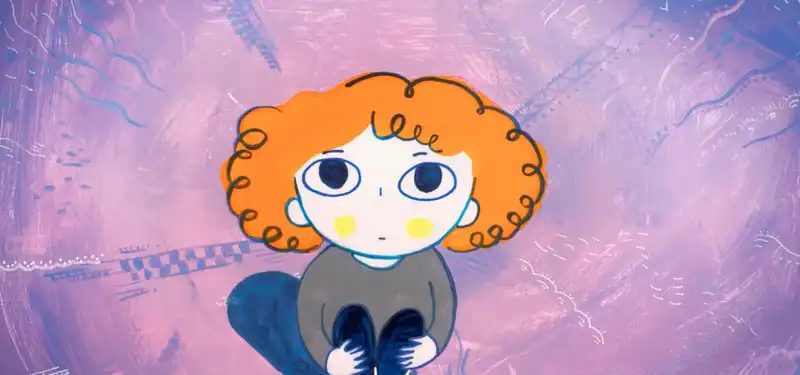Aug 30, 2023
2024 Academy Award Short Film candidate: "Armat" director Elodie Delange.
Welcome to the spotlight series of Cartoon Brew, which focuses on the 2024 Academy Award-nominated animated shorts. There are several ways in which a movie can qualify. Use these profiles to focus on Oscar-qualified and award-winning films at Oscar-qualified festivals.
Today's short story is the Swiss documentary Armat from director Elosie Delmange. Nadasdi Film Production was awarded the Golden Pegasus Jury Prize at the Animator International Animation Film Festival in Poland and was qualified for the award.
In this film, Elodie tries to learn more about the Armenian origin of the family. She interviews her father, uncle and great-aunt and discovers the grim history of violence and the inability to express love passed down from generation to generation.
Cartoon Brew: This is an autobiographical film. You can talk about the challenges of studying your family history and sharing it on the screen-
Élodie Dermange: I have always been taboo that my family is Armenian. All I remember as a link to Armenia was a huge cabinet in the living room of my grandfather's house. When I began to record my family, people surprisingly talked a lot not always about Armenia, but about the anger and violence that still exists in the family today.At first, I did not want to put it in my films. It took me some time to understand that everything is linked. The trauma of that family is transmitted from one generation to the next.
Everything that was said in the recording was new to me, even my father was telling me that he loved me. It was the first time I heard it. Thanks to my film, our relationship has changed. And now my father and I are much closer. Both are relieved from something.
What made you want to tell this particular story and why now-
It started out of personal curiosity. Making a movie was a great excuse to ask questions. I was convinced that the truth was unique, original and much more romantic. What I found did not meet my expectations at all. So much suffering, so much pain. If I had known all this before I started the movie, I wouldn't have done it. The stories of the Armenian people are often sad and dark. The tragedies they suffered, and the tragedies suffered by many other groups of different origins, are still happening today.
What did you learn through the experience of making this film, production-wise, filmmaking-wise, creative, or about the subject -
I learned so much. I have learned that people act with reason. If my grandfather was hard at times, it was because his father suffered and was hard at him. And if my father didn't express his love for me, it's because he never got that love from his father. I feel that many people are still experiencing the consequences of past wars, genocide, apartheid and orphanages. This is my most personal film yet, and I didn't expect much reaction from people with complex relationships with their families. This is my story, but I was deeply moved by many people.
Can you explain how you developed a visual approach to cinema - why did you settle for this style/technique-
I had this blue space in my head and wanted me to draw it. I took inspiration from the Armenian painter Martiros Saryan for this project. And to express anger, you can find better inspiration than Basquiat - celluloid was very complicated to shoot a film under the camera repeatedly all the background. We had to clean all the cells before taking pictures. It was also necessary to wear black to avoid reflections. My team did a great job of painting and shooting all the frames. There were paintings all over the studio. It was really good.
.



Post your comment